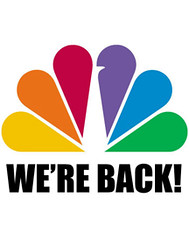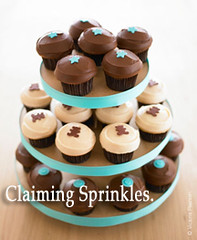There are two ways to learn. One of them is the hard way.
Almost one year ago to the day, NBC Universal (NBCU) made one of the worst decisions since it entered the digital media arena — it effectively banned itself from Apple iTunes. With the launch of iTunes 8 a few days ago and its fall schedule falling in place, NBCU seems to have finally learned the hard way and come back.
Of course, rumors of the peacock’s return to iTunes have been out there for some time. In January, Jeff Zucker, CEO of NBC, made a massive public relations dance move, shifting from the position that iTunes had destroyed the music industry to saying "We've said all along that we admire Apple, that we want to be in business with Apple."
When the rumors first surfaced in January, Engadget could only speculate as to NBC’s reasons. Today, it seems more clear. Apple has refined its terms of service and NBC will generate more revenue, assuming consumers want to spend $1 more for a high definition version of a television show.
The return might even be bittersweet. The SciFi Channel — which returns to iTunes along with NBC, USA, Bravo, NBC News, and Sleuth — praises the new deal, but then goes on to add “there's not much reason get your shows from iTunes instead of streaming them for free on NBC.com or Hulu.”
Wow! I’ve never seen a company tell consumers not to purchase its programming before. But then again, advertising revenue has always trumped consumer purchases at the networks. Ask any television show fan groups.
Since the SciFi Channel doesn’t seem to get it, we’ll help spell it out: NBC has always been smart about some of its moves into the digital arena like Hulu but dumb when it comes to understanding one critical component — portability.
Apple has created a platform that seamlessly allows me to purchase programs that I can watch on my computer, iPod, iPhone, or flat screen TV. Unfortunately, any HD purchases I might make will have to wait because the system requirements remove that portability selling point and/or double up on storage space.
There’s something else too. Apple needs to fix a glitch. Right now, if you select some shows in a standard format, they still default to HD in your shopping cart, making them impossible to purchase unless you have a dual-core 2.0 Ghz processor or better. So, for the time being, I’m blocked from buying certain shows until they sort it out or I upgrade my 2.1 Ghz “just before” dual core cpu.
More to the point, the return of NBC to iTunes sets the stage for how digital media will work on the net and it’s much more in line with our thinking when people were still telling us that convergence was nothing more than a fantasy. NBC and other networks need to focus on content creation to stay relevant.
Apple and others will become the digital distribution bridges while the finer points of convergence are finally sorted out. And networks have a long way to go before they understand public relations. You’re back on iTunes despite Hulu. Get over it.

Almost one year ago to the day, NBC Universal (NBCU) made one of the worst decisions since it entered the digital media arena — it effectively banned itself from Apple iTunes. With the launch of iTunes 8 a few days ago and its fall schedule falling in place, NBCU seems to have finally learned the hard way and come back.
Of course, rumors of the peacock’s return to iTunes have been out there for some time. In January, Jeff Zucker, CEO of NBC, made a massive public relations dance move, shifting from the position that iTunes had destroyed the music industry to saying "We've said all along that we admire Apple, that we want to be in business with Apple."
When the rumors first surfaced in January, Engadget could only speculate as to NBC’s reasons. Today, it seems more clear. Apple has refined its terms of service and NBC will generate more revenue, assuming consumers want to spend $1 more for a high definition version of a television show.
The return might even be bittersweet. The SciFi Channel — which returns to iTunes along with NBC, USA, Bravo, NBC News, and Sleuth — praises the new deal, but then goes on to add “there's not much reason get your shows from iTunes instead of streaming them for free on NBC.com or Hulu.”
Wow! I’ve never seen a company tell consumers not to purchase its programming before. But then again, advertising revenue has always trumped consumer purchases at the networks. Ask any television show fan groups.
Since the SciFi Channel doesn’t seem to get it, we’ll help spell it out: NBC has always been smart about some of its moves into the digital arena like Hulu but dumb when it comes to understanding one critical component — portability.
Apple has created a platform that seamlessly allows me to purchase programs that I can watch on my computer, iPod, iPhone, or flat screen TV. Unfortunately, any HD purchases I might make will have to wait because the system requirements remove that portability selling point and/or double up on storage space.
There’s something else too. Apple needs to fix a glitch. Right now, if you select some shows in a standard format, they still default to HD in your shopping cart, making them impossible to purchase unless you have a dual-core 2.0 Ghz processor or better. So, for the time being, I’m blocked from buying certain shows until they sort it out or I upgrade my 2.1 Ghz “just before” dual core cpu.
More to the point, the return of NBC to iTunes sets the stage for how digital media will work on the net and it’s much more in line with our thinking when people were still telling us that convergence was nothing more than a fantasy. NBC and other networks need to focus on content creation to stay relevant.
Apple and others will become the digital distribution bridges while the finer points of convergence are finally sorted out. And networks have a long way to go before they understand public relations. You’re back on iTunes despite Hulu. Get over it.


















